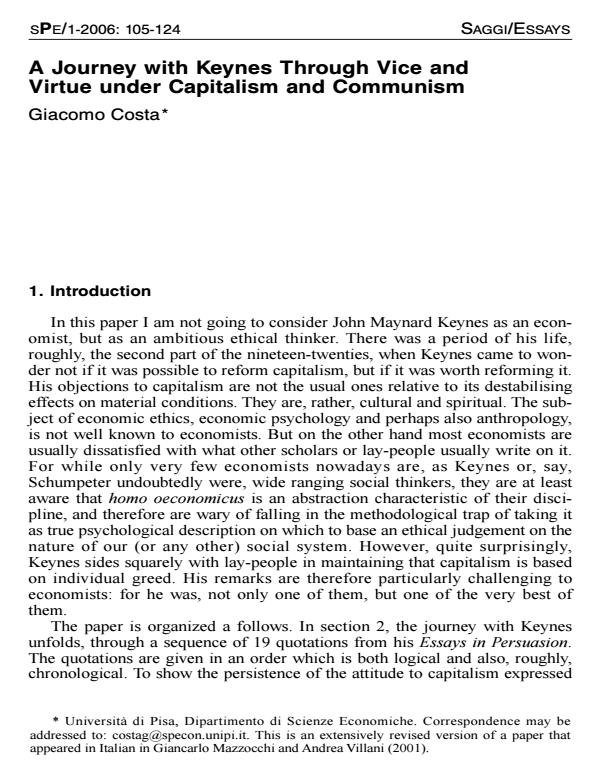A journey with Keynes through vice and virtue under capitalism and communism
Journal title STORIA DEL PENSIERO ECONOMICO
Author/s Giacomo Costa
Publishing Year 2006 Issue 2006/1
Language Italian Pages 20 P. File size 111 KB
DOI
DOI is like a bar code for intellectual property: to have more infomation
click here
Below, you can see the article first page
If you want to buy this article in PDF format, you can do it, following the instructions to buy download credits

FrancoAngeli is member of Publishers International Linking Association, Inc (PILA), a not-for-profit association which run the CrossRef service enabling links to and from online scholarly content.
There was a period of his life (1925-30) when Keynes came to wonder not if it was possible to reform capitalism, but if it was worth to reform it. Keynes thought that ” the essential characteristic of capitalism” was “the dependence upon an intense appeal to the money-making instincts of individuals”, and despised them. However, economists usually think that homo economicus is an abstraction characteristic of their discipline, not a true psychological description on which to base an ethical judgement. Why did Keynes, a foremost economist, side on this issue with laypeople and not with his colleagues? The question arises if he was somewhat traditional in his moral evaluation of capitalism, and naive and out of date in his sociological understanding of it. Analysis of his writings on this issue, and comparison with those by Schumpeter, Knight, and Max Weber, leads to a positive answer to it.
Giacomo Costa, A journey with Keynes through vice and virtue under capitalism and communism in "STORIA DEL PENSIERO ECONOMICO" 1/2006, pp , DOI: